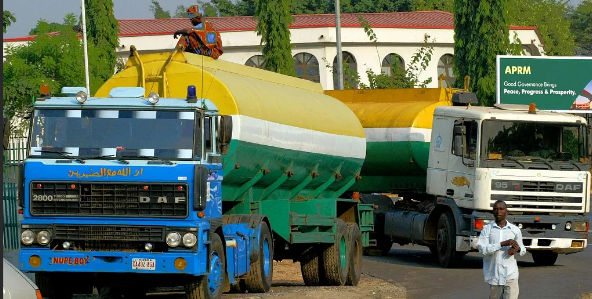Maureen Aguta
Daily consumption of Premium Motor Spirit (PMS) or petrol in Nigeria has dropped drastically under one year after President Bola Tinubu assumed office on May 29, 2023.
Data obtained by Advocacy Times from the Nigerian Midstream and Downstream Product Regulatory Authority (NMDPRA) Daily Truck Out Report, showed that consumption as of August 20, 2024, was 4.5 million litres per day.
This is about 92 per cent drop from the 60 million liters per day average which NMDPRA posted in 2023.
Analysis of the report, shockingly, revealed that out of the 36 states of the federation, only 16 states got product allocation from the Nigerian National Petroleum Company Limited (NNPCL) in the month under review.
This meant that those states that did not get product allocation suffered scarcity in August.
A breakdown of how NNPCL distributed the products among the 16 states, showed that Niger got the highest allocation of 21 trucks, amounting to 940, 000 litres daily, Lagos got the second highest of 12 trucks amounting to 726, 001 litres, and Kaduna got 12 trucks of 454, 001 litres.
Other states such as Oyo got 12 trucks of 454 litres, Kano 9 trucks, Ondo 6 trucks, Kwara 6 trucks, Edo 4 trucks, and FCT 4 trucks.
The likes of Sokoto state received 4 trucks from the NNPCL, Ogun state got three trucks, Osun three, Gombe one, Benue one, Ekiti one and Kebbi, one truck.
President Tinubu on May 29, 2023, declared an end to petrol subsidies, which at that time had gulped about N12 trillion in 10 years.
According to the president, payment of petrol subsidies was no longer sustainable as it had plunged the country into huge debts.
Petrol price has since skyrocketed from N195 per litre to about N1300 per litre, pushing up headline inflation to an almost three-decade high of 34.19 per cent in June. It has since slowed to 32.7 per cent in September.
The cost of living has also risen, plunging 129 million Nigerians into poverty, according to the latest data by the World Bank.
According to the global financial body, the over 129 million Nigerians represented a sharp rise from 40.1 per cent in 2018 to 56 per cent in 2024.
The World Bank report read, “With growth proving too slow to outpace inflation, poverty has risen sharply. Since 2018, the share of Nigerians living below the national poverty line16 is estimated to have risen sharply from 40.1 per cent to 56.0 per cent.
Combined with population growth, this means that some 129 million Nigerians are living in poverty. This stark increase partly reflects Nigeria’s beleaguered growth record. Real GDP per capita has not recovered to the level it was at prior to the oil price-induced recession in 2016.
“The COVID-19 pandemic compounded this drop in economic activity. Moreover, growth is failing to outpace inflation: large increases in prices across almost all goods have diminished purchasing power.”
It added, “Multiple shocks in a context of high economic insecurity have deepened and broadened poverty, with over 115 million Nigerians estimated to have been poor in 2023. Since 2018/19, an additional nearly 35 million people have fallen into poverty, so that more than half of Nigerians (51.1 per cent of the population in 2023) are now estimated to live in poverty.”
A related report by a foreign news medium, AFP, also detailed how Nigerians have since abandoned their cars as a result of the pounding hardship.
“I parked it at my son’s house. I use public transport now,” Emmanuel, a 72-year-old retired health worker, told AFP.
“It is not convenient, but it is what the economy demands.”
Car dealers in Lagos and Abuja told AFP that they had seen more and more people trading their fuel-guzzling cars and sports utility vehicles (SUVs) for more efficient vehicles to cut costs.
“People are actually selling their big cars these days,” Maji Abubakar, a car dealer in Abuja, said.
“The problem is that even if you put them on the market, there isn’t much demand for them.”
“It has been more than a year since I sold a car with an eight-cylinder engine, and the major reason is the price of petrol,” he added.


